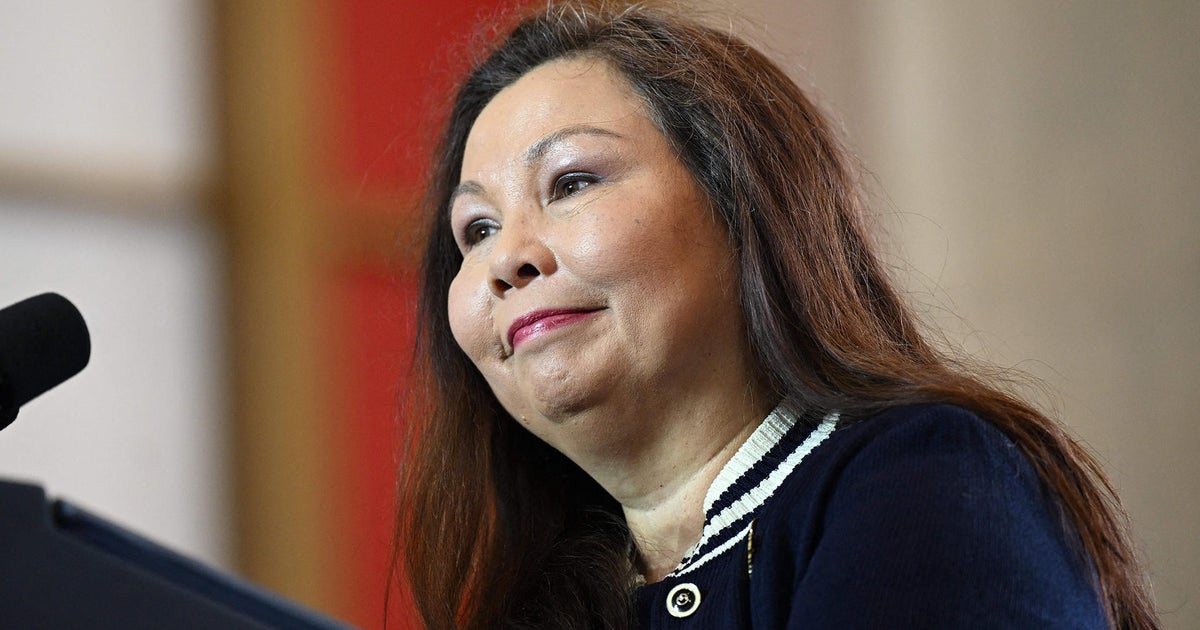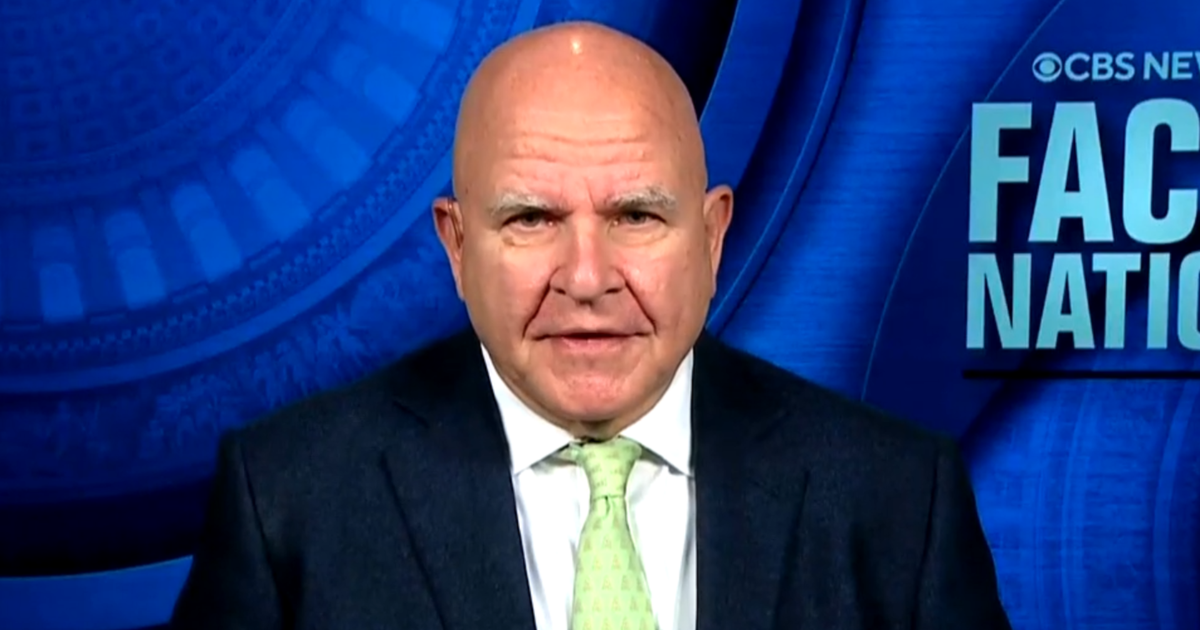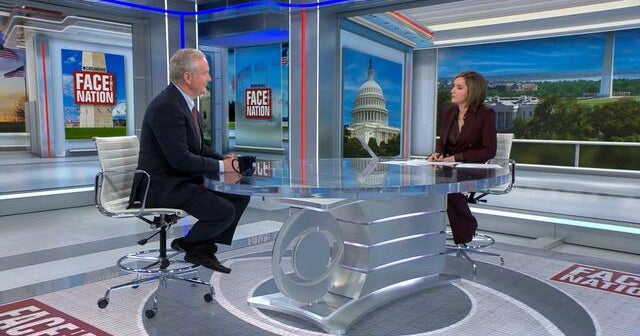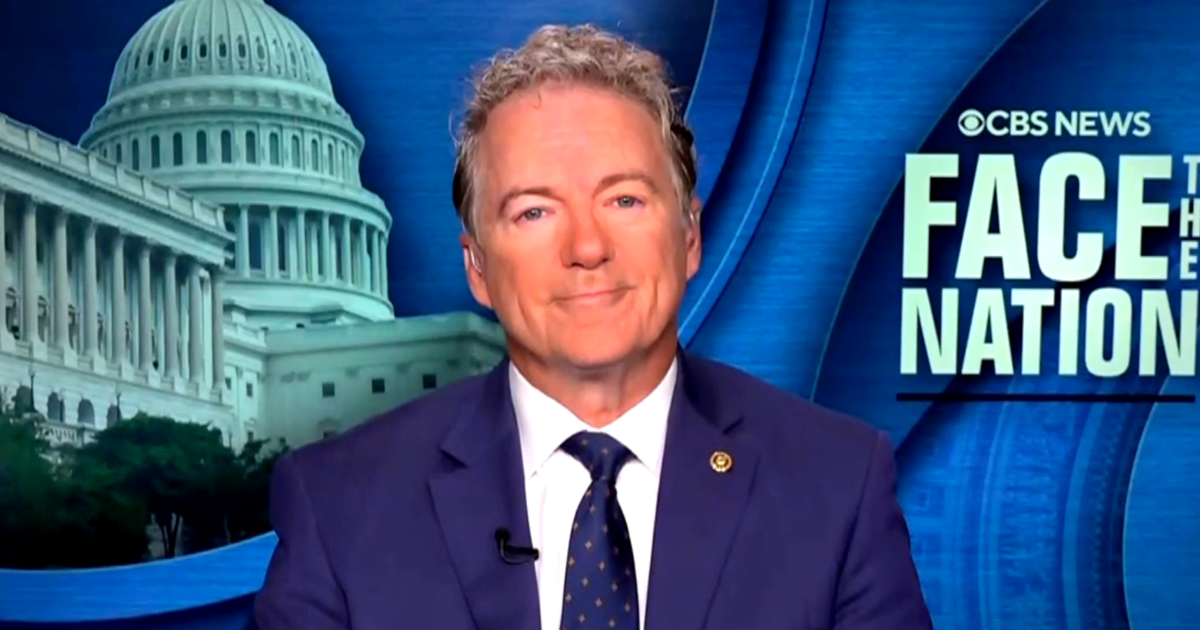ICYMI: Top takeaways from this week's "Face the Nation": Mixed messaging on masks
This week on "Face the Nation", with COVID-19 cases skyrocketing in the Sun Belt and parts of the West, the mixed messages and political divisions when it comes to containment are growing as well.
Here's the big takeaways from Sunday's episode of "Face the Nation"
1. Surgeon General Jerome Adams on correcting course on mask-wearing
- Surgeon General Jerome Adams wore a face mask on air during his "Face the Nation" interview to drive home the point that Americans need to abide by these CDC guidelines. He says the current outbreak can be under control within 2-3 weeks if Americans follow suit. On Saturday President Trump wore a mask in public for the first time. Adams, who is also a trained physician, said that the Administration is not "happy" with where they are in handling the COVID-19 surge in the southern and western states but he argued the response is far better than in the Spring.
- Prediction: "The disease course is about two to three weeks. So just as we've seen cases skyrocket, we can turn this thing around in two to three weeks if we can get a critical mass of people wearing face coverings, practicing at least six feet of social distancing, doing the things that we know are effective. And it's important for the American people to understand when we're talking about the fall..."
- COVID-19 & race: Adams argues that a legal mandate to wear a mask brings with it the risk of adding to over-policing, which he believes is of particular risk to Black Americans.
- "I'm saying that if we're going to have a mask mandate, we need to understand that works best at the local and state level along with education. We need people to understand why they're doing it. And we need people to understand how they benefit from it, because if we just try to mandate it, you have to have an enforcement mechanism. And we're in the midst of a moment when over-policing has caused many different individuals to- to be killed for- for very minor offenses. And that is an important consideration. As Surgeon General, I want people to understand why they should wear a face covering. And they're going to be more likely to do it. They're going to be more likely to do it willingly. And they're going to be more likely to do it when we're not watching, which is important."
- Why it matters: The CDC reports that Hispanics and Black Americans are three times more likely to get COVID-19 and they're twice as likely to die from it than Caucasians.
- Reopening schools: The CDC will release new guidelines for school reopenings this week. The President has blasted the CDC for its previous guidelines which he said were too tough and expensive. Adams focused in on one particular item that he thinks is too tough and expensive.
- "They say that every kid should bring in their own lunch. So you asked for a specific example. We know that in some school districts and many school districts, over 50 percent of kids are eating lunch at school and don't have the ability to bring their own lunch. So that's one case where we need to work directly with local school districts and help them figure out, okay, if you can't do what is the gold standard, best case scenario, can you do something that's a compromise to safely reopen? That's what we're talking about when we talk about issuing new- new, more specific recommendations that we can look at school district by school district--because not everyone can do the gold standard."
- Why it matters: Kids are set to return to the classroom within weeks amid the backdrop in certain districts of an increased epidemic. There is no definitive data yet on whether children are transmitting COVID-19 or just how harmful it can be to young people. That research is still being conducted.
2. Mayor Gallego on Phoenix's testing, housing challenges with COVID
- Phoenix has COVID-19 positivity rates of 20%, which makes it a significant hotspot of the epidemic. Mayor Kate Gallego claims that she did try to plan ahead by requesting federal support for additional testing in April but was denied. The health crisis is about to intersect with the economic crisis and potentially spark a housing problem. The Arizona state moratorium on evictions expires July 22nd.
- What Mayor Gallego said: "The best advice that public health professionals give is to stay home, but that's difficult if you don't have a home or are about to be evicted from it. I'm deeply worried about the expiration of the eviction order. What we're hearing is particularly renters are at risk. Many mortgage companies have been willing to say, we have a 30 year mortgage. We'll add a few months at the end. But if you were in month six of a year lease, you're at huge risk of- of being evicted, and I- I feel for our landlords- landlords. We have many retired couples who own a duplex, and that's a big part of their retirement."
- Why it matters: Homelessness is a concern when it comes to containing spread. For landlords and some mortgage lenders, the lack of payment risks hardship that could drag on the banking and financial sector.
3. Dr. Scott Gotttlieb on COVID's impact on children
- Former FDA Commissioner Dr. Scott Gottlieb emphasized that it is unclear what the impact of COVID1-9 is on children. The initial impression is that they may be less susceptible but thus far there is no definitive research. As he put it "the data isn't definitive, but it's certainly suggestive." That means the approach should be nuanced and cautious. America faces a unique risk: "No other country, with the exception maybe of Sweden, reopened their schools or kept their schools open against the backdrop of so much spread that we're attempting to do in this country."
- What Gottlieb said: "And while the balance of the data shows that kids are less susceptible to infection and less likely to transmit it, less susceptible doesn't mean they're not susceptible. And sometimes- some of the studies show that they can compensate for their decline in susceptibility by their propensity to spread infection, by their behaviors that are more likely to propagate infection."
- Why it matters: It isn't a question of whether to reopen schools to educate children. It is a question of HOW to do it safely and whether certain areas should continue distance learning instead of in person classes during the epidemic. President Trump has threatened to withhold federal funding for schools that do not open and has characterized CDC guidelines on how to reopen them safely as too strict and expensive. That pressure could mean that district officials make decisions based not on science but out of financial necessity or political pressure.
- Why do Southern and Western states appear unprepared for the COVID-19 spikes now when they witnessed how hard hit the East Coast was in the Spring? Why weren't lessons learned? Gottlieb faulted the federal government for not having a national plan to direct Governors who wrongly bet that their states were out of the woods.
- Prediction: "We really don't have a national approach here. What we have is state approaches that are creating regional effects. And so those regional effects are different. And the New York experience mirrored Italy. I think the Southern experience is more likely to mirror Brazil, where you're likely to see more of an extended plateau once we reach that apex. And you could reach the apex in the next two or three weeks."
3. KinderCare CEO on funding for child care industry
- There is no definitive data on the effects of COVID-19 on children or whether they can spread the virus. The CDC is still studying it. Finding a way for parents to safely send their kids to school or childcare is key to reopening the economy. KinderCare's CEO Tom Wyatt told us that the entire childcare industry needs emergency financial support in order to continue to function.
- Congress provided just $3.5 billion in aid in the CARES Act but KinderCare's CEO told us more is needed.
- What Wyatt said: We hope we'll be a part of phase four when they return on the 20th of July from recess. Two things that we've asked them for is we are operating at a compromised state. State mandates have been certain number of children in a room, much less than we've had in the past. Our centers, given those mandates, can only get to 45, 50 percent of their capacity, which candidly, we don't make money at that rate. So we need to relax those over time and when it's safe to do so. So we've asked for a rebound grant fund and that fund is for the next six to nine months. We're asking for between 25 and 50 billion dollars to help us get through the additional costs of PPE, the additional costs of training. We have more labor in- more- more labor in the center than we had pre-COVID. We have a dedicated ambassador for health and safety, which is additional headcount. And all of that with less than 50 percent of the children that we had pre-COVID."
- Why it matters: 27 million Americans are dependent on childcare in order to do their own jobs. That means restarting the economy and returning to work requires finding a way to have someone safely take care of those children.
4. AdventHealth CEO on hospital needs to combat COVID
- AdventHealth's CEO Terry Shaw runs one of the largest hospital systems in Florida where they have around 30 hospitals. Shaw emphasized that they stockpiled supplies of PPE back in March and April in anticipation of a surge. He said the state is helping to supply his medical team with more Remdesivir which had been running short. One thing he does anticipate is a potential shortage of personnel
- What Shaw said: "Our ICU capacities are running at about 85 to 90 percent, but we have the ability to turn some of our progressive care units in the ICU units if we need to do so. Also, as a multi-state system, we're working with one of our sister states in Colorado where we have facilities to bring clinicians from Colorado to Florida to help us staff up if we need to on an ongoing basis."
- Why it matters: Florida is a COVID-19 hotspot and the state only recently began releasing data on hospitalizations. AdventHealth has visibility into what's happening at their own facilities. Shaw predicts the peak of hospitalizations will be later this month.
Missed Sunday's episode? Click here to watch the show. "Face the Nation" airs Sunday mornings on CBS. Click here for local listings.




